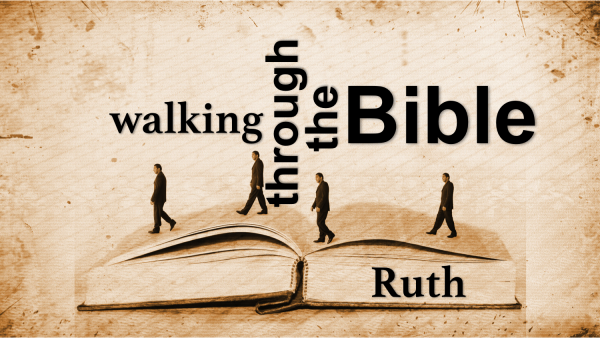The book of Ruth is an oddity as compared to the rest of the books of the Bible because it is the only book that is completely devoted to one woman’s life, and only one of two books that bears the name of a woman (the other being Esther). However, the story of Ruth is of great beauty and amazement as it relates to the unfolding of God’s scheme of redemption. Ruth is just another strand in the scarlet thread of redemption wound throughout the Bible. She herself was in fact a Moabitess, one outside of God’s covenant because of her Gentile status, but her presence in God’s plan is remarkable.
Upon remaining with Naomi, Ruth’s life begins to unfold in a wonderfully providential way:
“They received a warm welcome in Bethlehem, and Ruth gleaned in the fields of Boaz, a wealthy kinsman of Elimelsh. Ruth found favor with Boaz, who treated her kindly, and exercising the kinsman’s right of redemption, bought the parcel of land belonging to Elimelesh. This, according to Jewish alw, bound Boaz to marry Ruth, “To raise up the name of the dead upon his inheritance” (4:10; Deuteronomy 25:5-10). Ruth’s devotion to Naomi and to her God was thus rewarded with rest in the house of Boaz (3:1) and the honor of becoming an ancestor of Jesus” (Dunn).
Recognizing her goodness, God in His providence used this loyal, yet Gentile woman to bring about His only begotten Son, Jesus Christ. Recorded in Matthew 1:5, “And Salmon begat Boaz of Rachab; and Boaz begat Obed of Ruth; and Obed begat Jesse…” It was likewise through this seed-line that king David and his royal descendants came forth, showing how that God sometimes uses those who are not His own to accomplish His purposes. And He could not have done it through a couple that showed more purity and love in the sacred bond of marriage than did Boaz and Ruth. May the love of all wedded couples be as strong as was the case with these two.
The events of Ruth’s life actually took place during the midst of all that was occurring during the period of the Judges (Ruth 1:1), therefore happening within that 350 year period, of which this account spans only about ten years. More than likely these things took place around 1200 B.C., but was not recorded by Samuel the prophet until shortly following the birth of David.
In the book of Ruth the principle of Boaz being the “kinsman redeemer.” The kinsman redeemer under Jewish law had certain qualifications that were to be met before performing their duties. He had to:
1. Be related by blood to those he redeems (Deuteronomy 25:5,7-10).
2. Be able to pay the price of redemption (Ruth 2:1).
3. Be willing to redeem (Ruth 3:1).
4. Be free himself.
Whereas Boaz was Ruth’s kinsman redeemer, Christ is also seen by these qualifications as being the kinsman redeemer for man today. Christ is related by blood as he became flesh, therefore being not only Son of God but Son of man. He is able to pay the price of redemption (I Peter :18-19). He is willing to redeem man (John 10:18). And Christ is free Himself being free from the curse of sin (Hebrews 4:15).
The book of Ruth is of great value to all children of God and its lessons should be studied by all. May its great wealth of wisdom be always studied and cherished by all.

